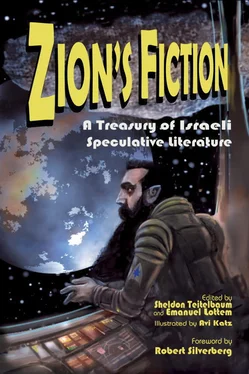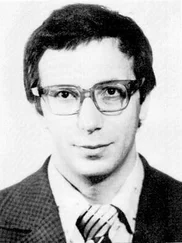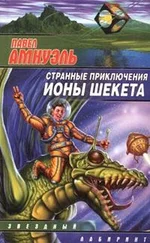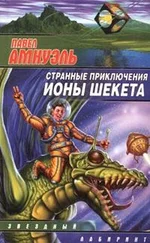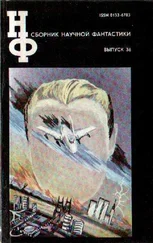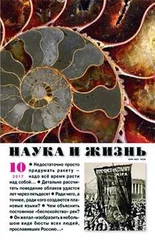SF/F writer Lavie Tidhar says of Hasson: “In his refusal to compromise on commercial principles, and in his ongoing experimentation with various forms of media, it has become clear that he is following an intensely personal vision; one to which his commitment is whole.”
Hasson’s latest book, Tickling Butterflies , was released in Israel in 2017; currently he is writing and directing a feature-length horror film, Statuesque .
Keren Landsman, MD,is a mother, an epidemiology and public health specialist, and an award-winning SF author. In 2014 she volunteered to go to South Sudan to instruct local health care workers in epidemiology and public health. She is one of the founders of Mida’at, a voluntary organization dedicated to the promotion of public health in Israel. She currently works at a free STD clinic and at the mobile clinic for sex workers.
Landsman first started reading SF in school, in spite (or because) of the librarian’s claim that “it’s not for girls,” and has been reading it ever since. Her interests come through in her works, where one may encounter children fighting medically accurate space epidemics. From motherhood to friendship and coping with loss, all these and more find their way into stories that balance emotion, plot, and vision. Landsman published her first story in 2006, winning three Geffen awards, Israel’s top prize for science fiction, twice for best original short story and once for best original book: Broken Skies , a collection of her short stories.
“Burn Alexandria,” she says, is the literary fulfillment of her wistful yearning to have saved, together with her editor, close friend and Israeli SF maven Ehud Maimon, the Great Library of Alexandria.
Savyon Liebrechtwas born in Munich in 1948 as Sabine Sosnovsky to Polish Holocaust survivors (her father had emerged from Buchenwald, his first wife and baby had not). She was two years old when she arrived in Israel, where her family finally settled in Bat Yam. She started her military service in a kibbutz and was later transferred to the Tank Corps as a communications specialist. During that time she started working on her first novel, about a girl who leaves a kibbutz for the big city. After her service Liebrecht departed for London, where she took up journalism studies. A year and a half later she returned to Israel, changed her first name to Savyon, and began to study English literature and philosophy at Tel Aviv University. After graduation, she taught English to adults, studied sculpture, and began writing for the women’s monthly At (You). She attended a writers’ workshop run by noted Israeli author Amalia Kahana-Carmon and submitted the resultant story, “Apples from the Desert,” to the editors of Iton 77 , who published it in 1984. It was reworked for theater two years later and subsequently (2015) became a feature film.
Liebrecht writes novellas, novels, and plays, but her forte is in short stories. Much of her fiction falls under the category of psychological realism, as testified by titles such as “Horses on the Highway” (1988), “It’s All Greek to Me, He Said to Her” (1992), “On Love Stories and Other Endings” (1995), and “Mail-Order Women” (2000). These provided adequate cover for her rare forays into the fantastique , of which “A Good Place for the Night” (2002) serves as the most accomplished example. She is known as a meticulous craftsperson, building her narratives out of objects she finds in her personal life and experiences. Liebrecht also translated the Jewish-American writer Grace Paley into Hebrew. She wrote a number of teleplays as well, which eventually found their home on Israeli television. These won her the Alterman Prize in 1977.
Nitay Peretz,born in 1974 in Kibbutz Revivim, where he lives now with his family, studied scriptwriting at the Camera Obscura school of art and became a researcher, scriptwriter, and documentary director. He is also a social activist, involved in various projects, and a blogger. Since 2004 he has been directing, shooting, and editing the life stories of many Israelis. His writing career so far includes one children’s book, Eyaly’s Heart , and the novella My Crappy Autumn .
Mordechai Sasson(1953–2012) was a chemist, an artist, and a writer. Born in Jerusalem to a family that has lived there for many generations, Sasson became a self-taught painter, specializing in oils. Since early childhood he avidly collected science fiction books and magazines, comics, and films. His worldview was ahead of its time in Israel, especially in matters of literature and poetry, art and music.
During his military service he participated in the Yom Kippur War, and he subsequently started painting. While studying chemistry at the Hebrew University in Jerusalem, he began to write science fiction. One day he left his notebook in class, and the assistant professor who found it decided to send one of the stories to Fantasia 2000 , which published it forthwith. Having won some success with further stories, including the one that follows herein, he began publishing stories in more venues, mainly children’s magazines. These stories were accompanied by his own illustrations. He published one children’s book, The Toads’ Party (1993), also illustrated by him. Sasson dedicated his stories to his good friend Eli Altaretz and to his own two daughters, to whom he always emphasized that knowledge is the greatest power.
Sasson was involved in helping the poor and was severely critical of Israeli society for generally ignoring them. His stories featured the city of Jerusalem and its folksy citizens with gentle humor, kindness, and deep love.
Nava Semelwas born in Jaffa in 1954 to Romanian Holocaust survivors Mimi (Margalit) and Yitzhak Artzi, née Hertzig. Her father was a member of the Romanian Zionist Youth Movement, which became involved in a first-of-its kind rescue attempt in Transnistria. The family emigrated to Israel in 1947 but was stopped en route by the British, who sent them to a detention camp in Cyprus. Upon their arrival in Israel, Yitzhak Artzi served as deputy mayor of Tel Aviv, a post he would hold for twenty years, after which he was elected to the Knesset as a representative of the Independent Liberal party. Semel’s brother, Shlomo Artzi, is regarded as one of Israel’s most iconic balladeers.
Semel attended Tel Aviv’s Gymnasia Herzliya, then served in the army as a reporter for the IDF radio station. She worked for Israeli television and the fledgling Beit Hatfutzot while completing a degree in art history at Tel Aviv University. In 1976 she married Noam Semel, a theatrical producer who went on to become theatrical director of Tel Aviv’s iconic Cameri Theatre. Through 1988 she worked as a book reviewer, film critic, and journalist. That year she left to the United States with her husband, who had been appointed cultural consul to the Israeli Consulate-General in New York.
Semel’s scrapes at the scar tissue of the Holocaust, searching for the effable behind the determined silences in Israeli survivor families. Her SF/F, most particularly the novel And the Rat Laughed (2001), deals with the ostensible inability to confront the unmentionable. This novel was staged by the Cameri Theatre and is slated to become a major international film. Isra-Isle , published in 2008, is an alternate history novel that posits the creation of a Jewish homeland in upper New York State. It was published well before Michael Chabon embarked upon his similarly themed The Yiddish Policeman’s Union . Semel is an SF aficionado and is unapologetic about what others may see as rummaging behind the cowsheds.
Nava Semel was the recipient of several awards, including the American Jewish Book Prize, the Prime Minister’s Prize, Austria’s Best Radio Broadcast Prize, and Israeli Woman Writer of the Year. She succumbed to cancer in 2017.
Читать дальше
